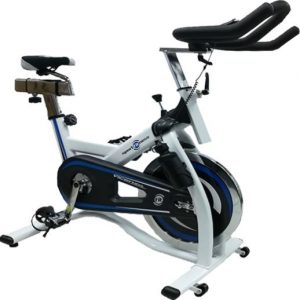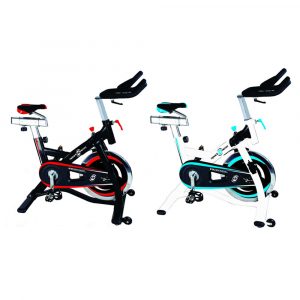Características del Producto
| Peso | 47 kg |
|---|---|
| Dimensiones | 103 × 20 × 82 cm |
| Peso Máximo de Usuario | 120 Kg |
| Sistema de arrastre | Banda |
| Peso de Volante | 18 Kg |
| Sistemas Multiposición | 4 |
Original price was: $2.154.000.$1.615.500Current price is: $1.615.500. IVA
Descripción:
Color sujeto a disponibilidad
| Peso | 47 kg |
|---|---|
| Dimensiones | 103 × 20 × 82 cm |
| Peso Máximo de Usuario | 120 Kg |
| Sistema de arrastre | Banda |
| Peso de Volante | 18 Kg |
| Sistemas Multiposición | 4 |
La bicicleta spinning Vicenza de Sport Fitness es un equipo cardiovascular perfecto para quemar grasa y proteger el corazón.

Es una excelente máquina con estructura en hierro de alto tráfico, pintura electrostática de alta duración y 4 sistemas multi posición. Además, es muy cómoda para entrenar por su manubrio antideslizante y su galápago en espuma de alta densidad. Permite evitar accidentes por medio de su freno de seguridad. Es ideal para el alto tráfico de gimnasios.

Puedes poner la bicicleta spinning Vicenza de Sport Fitness en el lugar que desees o incluso moverla constantemente, ya que la Vicenza viene con rodachinas.
Su ciclo computador es muy completo en la información que brinda (velocidad, distancia, calorías, tiempo ). Incluso es compatible con SIGMA y POLAR (No Code) adquiriendo una banda pectoral para medir la frecuencia Cardiaca.
Su sistema de arrastre es banda. Es decir, es más duradera, silenciosa y requiere de menos mantenimiento.

Otras características:
Color sujeto a disponibilidad
*SE REQUIERE ENSAMBLE
Debes acceder para publicar una reseña.
Martin –
Muy bien atendido. Buenos productos. Gracias!